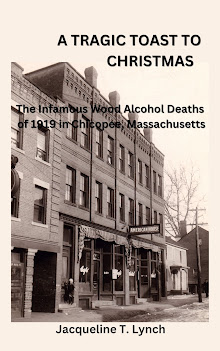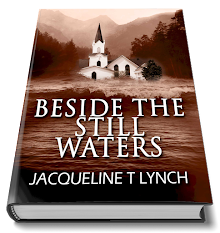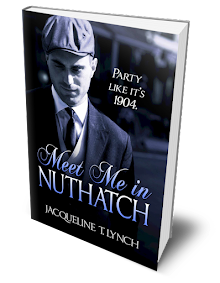Taking the week off. Thank you for the pleasure of your company in 2009. See you in 2010....
Tuesday, December 29, 2009
Friday, December 25, 2009
It Came Upon a Midnight Clear in Weston, Mass.
“It Came Upon a Midnight Clear” was written by a Unitarian minister from Weston, Massachusetts in 1849. It was an age when ministers, and lawyers, and educated men, and gentlewomen, wrote poetry both as a means of entertaining others, and to improve themselves. Poems were written privately, in quiet, thoughtful, intellectually intimate moments, and then shared with everybody else in the parlor.
In this case, Dr. Edmund Spears, the minister poet, might be surprised to discover that his poem has become one of the most popular and well-known carols of the Christmas season a century and a half later.
The tune most commonly used in America was composed by Richard Storrs Willis the following year of 1850. (A melody more popular in the U.K. was written by Arthur Sullivan of Gilbert and Sullivan fame.) Willis was originally from Boston, later a Yale graduate, but had studied composition in Germany, a friend of composer Felix Mendelssohn. Dr. Spears had published his poem in the Christian Register, and it is likely that this is where Mr. Willis discovered it, and thought it suitable to his melody.
It came upon the midnight clear,
That glorious song of old,
From angels bending near the earth,
To touch their harps of gold;
“Peace on the earth, good will to men,
From Heaven’s all gracious King.”
The world in solemn stillness lay,
To hear the angels sing.
Still through the cloven skies they come
With peaceful wings unfurled,
And still their heavenly music floats
O’er all the weary world;
Above its sad and lowly plains,
They bend on hovering wing,
And ever over its Babel sounds
The blessèd angels sing.
Yet with the woes of sin and strife
The world has suffered long;
Beneath the angel strain have rolled
Two thousand years of wrong;
And man, at war with man, hears not
The love-song which they bring;
O hush the noise, ye men of strife
And hear the angels sing.
Posted by
Jacqueline T. Lynch
at
9:02 AM
2
comments
![]()
Labels: holidays, literature, Massachusetts
Tuesday, December 22, 2009
Last Minute Gifts
Not done shopping yet? Here’s a couple more ideas. Running down the clock to Christmas, here we have a 1950s-era ad for Forbes and Wallace of Springfield, Mass. Ladies hosiery solid in a toy drum box with a sprig of holly on top, three pairs for $2.85. See main floor.
And for the gents, shaving soap and lotion for $2 over at Steiger’s as show in this 1950 ad. Also, see main floor.
Posted by
Jacqueline T. Lynch
at
7:30 AM
2
comments
![]()
Labels: 20th Century, business, holidays, Massachusetts
Friday, December 18, 2009
Enough Rum to Build a Meeting House - Northampton, 1737
In 1737, some fellows building a new meeting house in Northampton in the western part of the Massachusetts colony, consumed 69 gallons of rum, 36 pounds of sugar, and several barrels of beer and cider in one week, presumably on their union-mandated breaks and lunchtime. Okay, no union. Not yet.
This likely would have been the Third Meeting House in Northampton, the Congregational Church under Reverend Jonathan Edwards at the time, just a few years away from his famous and frightening sermon, Sinners in the Hands of an Angry God.
After listening to that, it’s likely one would have needed a drink. Hopefully, they had some left.
Posted by
Jacqueline T. Lynch
at
7:41 AM
2
comments
![]()
Labels: 18th Century, houses of worship, Massachusetts
Tuesday, December 15, 2009
You Are Here: Rt 1, Northern Maine
Posted by
Jacqueline T. Lynch
at
7:36 AM
0
comments
![]()
Labels: 21st Century, Maine, You Are Here
Friday, December 11, 2009
Gerhardt's Civil War Memorial - Brooklyn, CT
The bronze figure stands atop a gray granite pedestal, approximately 30 feet in height, and was manufactured by the Ames Bronze Company of Chicopee, Mass. See this previous post on the Ames Manufacturing Company and its resident family of bronze founders, the Mosmans.
The Soldiers and Sailors Monument was dedicated June 14, 1888, the same day as the General Putnam statue in Brooklyn, as described in this previous post. It was a gift to the town from Thomas Smith Marlor, who had moved to Brooklyn, CT from New York City in 1870.
The sculptor, Gerhardt, who lived in Hartford, was a protégé of Mark Twain, and was 24 years old when he created this sculpture.
Posted by
Jacqueline T. Lynch
at
7:30 AM
0
comments
![]()
Labels: 19th century, art, Civil War, Connecticut, monuments
Tuesday, December 8, 2009
USS Massachusetts - Fall River
The battleship was launched in September 1941, just a few months before Pearl Harbor was attacked by the Japanese Empire and the United States formally entered World War II. It was built in Quincy, Mass. at the Fore River Shipyard. “Big Mamie” went into action in November 1942 off Casablanca.
Now, her lower decks containing displays of artifacts and memorabilia, and she lies as part of a smaller museum fleet here in Fall River, Mass., at Battleship Cove, along with the submarine Lionfish, and ships from the Cold War including the USS Joseph P. Kennedy.
For more on the history of the USS Massachusetts, and the displays at Battleship Cove, have a look at this website.
Posted by
Jacqueline T. Lynch
at
7:39 AM
0
comments
![]()
Labels: 20th Century, Massachusetts, museums, World War II
Friday, December 4, 2009
Bennington Moosefest
This painted moose greets you in Bennington, Vermont. He has several friends. All over town. Painted in all kinds of silly and beautiful designs.
The Bennington Moosefest is unlike any old home day you’ve probably been to, and I regret that I did not report on it in October when the Moosefest was in full swing. However, the moose are seen here and about all over the Bennington area, so if you’re looking for a pleasant drive with a series of most unusual photo ops, Bennington is the place for you.
Here is a website with more detail on the Moosefest, and be sure to mark your calendars for next year.
Posted by
Jacqueline T. Lynch
at
7:30 AM
0
comments
![]()
Tuesday, December 1, 2009
The Pilgrims and the Printing Press
Before we leave Thanksgiving behind us for another year, let’s recall that one of the items brought to the New World on the Mayflower we believe was a printing press, a large iron piece of which was used to shore up a splitting beam on the voyage.
The Mayflower Compact was handwritten, but this replica of the 1669 printed copy shows the printing press was just as instrumental at founding, and preserving, an equitable nation as the bonds of commonwealth established by the Mayflower Compact.
Here is the Massachusetts Spy out of Worcester in 1775, only a few weeks after the Battle of Lexington and Concord, when “God Save the King” was replaced by “Liberty or Death!”
Here we have a less incendiary newspaper from Northampton, Mass. in more placid times of 1826, and from Holyoke, Mass. in 1882, when we see the dawn of the 20th Century brought advertising to a more prominent place in the media. The Holyoke Transcript, later the Holyoke Transcript-Telegram, has followed the path of many newspapers of the last twenty years and is now defunct.
Today we are losing our newspapers with alarming rapidity, but communication continues in its myriad forms. Keeping an open mind rather than choosing to read only news which pleasures but does not challenge, and opinion in which we are already in agreement is the worst form of tyranny, because it is self imposed. We seem to need to re-learn that every once in a while through the centuries.
These printing press photos are from Sturbridge Village. Go have a look at the printer plying his trade.
Posted by
Jacqueline T. Lynch
at
7:51 AM
4
comments
![]()
Labels: 17th Century, 18th Century, 19th century, colonial period, holidays























